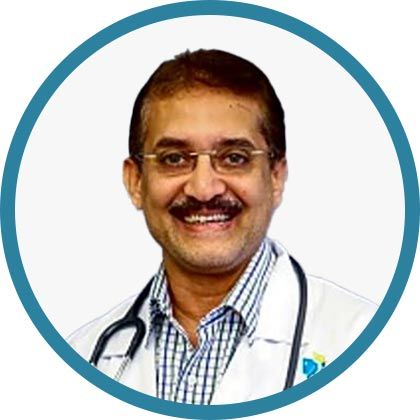Exercise Guidelines for Heart Health
Discover essential exercise guidelines for a healthier heart! Learn about recommended aerobic activity, strength training, and practical tips to improve cardiovascular fitness, lower disease risk, and boost overall well-being.

Written by Dr. J T Hema Pratima
Reviewed by Dr. Mohammed Kamran MBBS, FIDM
Last updated on 4th Aug, 2025

Introduction
Your heart is one of the hardest working muscles in your body, pumping blood and oxygen to every part of your system. Keeping it healthy is essential for a long and active life. One of the best ways to support your heart is through regular exercise. But how much should you exercise, and what kind of activities are best? Let’s break it down in simple, easy-to-follow steps.
Why Exercise is Important for Heart Health?
Regular physical activity helps:
Strengthen your heart muscle
Improve blood circulation
Lower blood pressure
Reduce bad cholesterol (LDL) and increase good cholesterol (HDL)
Maintain a healthy weight
Reduce stress and anxiety
A sedentary (inactive) lifestyle increases the risk of heart disease, high blood pressure, diabetes, and obesity. The good news? Even small changes in your daily routine can make a big difference!
How Much Exercise Do You Need?
The American Heart Association (AHA) recommends:
At least 150 minutes of moderate intensity aerobic exercise per week (like brisk walking, cycling, or swimming) OR
7-5 minutes of vigorous intensity aerobic exercise per week (like running, fast cycling, or high intensity interval training)
You can break this down into 30 minutes a day, 5 days a week—or even shorter sessions if that works better for you.
Types of Exercise for Heart Health
Types of exercise for heart health are:
1. Aerobic (Cardio) Exercise – Strengthens the heart and lungs.
Examples: Walking, jogging, swimming, dancing, cycling
Start slow if you're new—even a 10minute walk counts!
2. Strength Training – Helps maintain muscle and metabolism.
Examples: Weight lifting, resistance bands, bodyweight exercises (pushups, squats)
Aim for 2 days a week, focusing on major muscle groups.
3. Flexibility & Balance Exercises – Improves mobility and reduces injury risk.
Examples: Yoga, stretching, tai chi
Great for relaxation and stress relief.
Tips for Safe and Effective Exercise
Start Slow – If you’re new to exercise, begin with 1015 minutes a day and gradually increase.
Warm Up & Cool Down – Spend 510 minutes stretching before and after workouts to prevent injuries.
Listen to Your Body – If you feel dizzy, short of breath, or have chest pain, stop and consult a doctor.
Stay Hydrated – Drink water before, during, and after exercise.
Wear Comfortable Clothes & Shoes – Proper footwear reduces strain on your joints.
What If You Have a Heart Condition?
If you have heart disease, high blood pressure, or other health concerns, talk to your doctor before starting a new exercise plan. They may recommend:
Cardiac Rehabilitation – Supervised exercise programs for heart patients.
LowerIntensity Workouts – Such as walking or gentle yoga.
Monitoring Heart Rate – Keeping exercise within a safe range.
Consult Top Specialists for Personalised Tips
Small Changes for Big Heart Benefits
You don’t need a gym membership to stay active! Try these simple habits:
Take the stairs instead of the elevator.
Park farther away to walk more.
Stand up and stretch every hour if you sit for long periods.
Dance to your favorite songs at home.
Walk while talking on the phone.
When to See a Doctor?
If you experience any of these during exercise, seek medical advice:
Chest pain or discomfort
Severe shortness of breath
Irregular heartbeat
Dizziness or fainting
Take the First Step Toward a Healthier Heart
Starting an exercise routine can feel overwhelming, but every little bit helps. Whether it’s a daily walk, a yoga session, or playing with your kids—movement matters!
If you need personalized advice, consider consulting a heart specialist. You can book a consultation or health check-up through Apollo 24|7 for expert guidance tailored to your needs.
Final Thought
Your heart works tirelessly for you—return the favor by keeping it strong and healthy with regular exercise. Start today, one step at a time!
Consult Top Specialists
Consult Top Specialists for Personalised Tips

Dr. Sitaram V. Chowti
General Physician/ Internal Medicine Specialist
40 Years • MBBS, MD
Bengaluru
Apollo Hospitals Jayanagar, Bengaluru
(100+ Patients)

Dr. Rajib Ghose
General Practitioner
25 Years • MBBS
East Midnapore
VIVEKANANDA SEBA SADAN, East Midnapore

Dr. M C S Reddy
General Physician/ Internal Medicine Specialist
9 Years • MBBS, MD (Gen. Med.), Dip.Diabetoogy, IDCC
Nellore
Apollo Speciality Hospitals, Nellore

Dr. Aman Kumar
General Physician/ Internal Medicine Specialist
29 Years • MBBS, MD
Chennai
Apollo Hospitals Heart Centre Thousand Lights, Chennai
(75+ Patients)
Dr Anand Jat
General Physician/ Internal Medicine Specialist
8 Years • MBBS, MD Medicine
Bhopal
Apollo Sage Hospitals, Bhopal
Consult Top Specialists

Dr. Sitaram V. Chowti
General Physician/ Internal Medicine Specialist
40 Years • MBBS, MD
Bengaluru
Apollo Hospitals Jayanagar, Bengaluru
(100+ Patients)

Dr. Rajib Ghose
General Practitioner
25 Years • MBBS
East Midnapore
VIVEKANANDA SEBA SADAN, East Midnapore

Dr. M C S Reddy
General Physician/ Internal Medicine Specialist
9 Years • MBBS, MD (Gen. Med.), Dip.Diabetoogy, IDCC
Nellore
Apollo Speciality Hospitals, Nellore

Dr. Aman Kumar
General Physician/ Internal Medicine Specialist
29 Years • MBBS, MD
Chennai
Apollo Hospitals Heart Centre Thousand Lights, Chennai
(75+ Patients)
Dr Anand Jat
General Physician/ Internal Medicine Specialist
8 Years • MBBS, MD Medicine
Bhopal
Apollo Sage Hospitals, Bhopal




